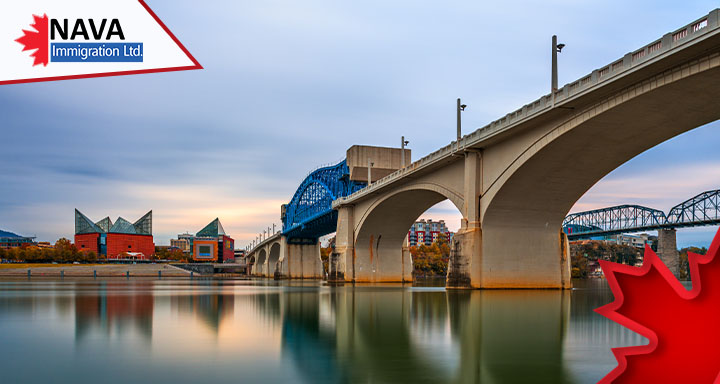What You Must Know About Living In Fort McMurray, Alberta?
Being amid the rugged beauty of northern Alberta, Fort McMurray demonstrates a unique blend of natural splendor as well as industrial dynamism. As a pivotal hub in Canada’s oil sands industry, this city grants a lifestyle shaped by its economic opportunities and pristine wilderness. Whether you are enticed by its resilient community spirit or career opportunities, the place promises a distinctive living experience as compared to other places in Canada. Wondering about the place? Well, don’t worry, we got you covered! Stick with this guide to know about living in Fort McMurray, Alberta.
About Fort McMurray
Fort McMurray is an integral part of the Regional Municipality of Wood Buffalo, situated in northern Alberta. Having a population of 60,000, it is considered a city.
Fort McMurray services the oil sands industry and has expanded quite rapidly in recent years due to the increased development of the oil sands.
Moreover, wages in Fort McMurray are usually high, but the cost of living has grown substantially with the boom. Workers are well paid here and having Fort McMurray work experience is rated highly by many companies.
Furthermore, living in Fort McMurray is rather different from living in one of the main cities in Canada. Fort McMurray is a male-dominated town, and the population is transient, as most people come to work, make money, and eventually leave.
In addition, the Oil Sands Discovery Center is a compelling place to learn how oil is made. Also, the wider Wood Buffalo municipality, of which Fort McMurray is an integral part, does have a lot to offer.
Living In McMurray: Economy
Fort McMurray is situated in the Athabasca oil sands. With around 1.7 trillion barrels of oil in the area, Canada has the second-largest oil reserves in the world. Fort McMurray’s economy is dominated by industries that support the extraction and export of oil.
Shell, Imperial Oil, Canadian Natural, and others are significant operators of the mines in the area. Oil is extracted in either two ways: open pit mining of oilsands ore or SAG-D extraction.
Besides the oil sands, the economy of the city relies on natural gas and oil pipelines, forestry, and tourism. Fort McMurray’s growth is an attribute of a boomtown. Housing prices as well as rents are quite high in the city as compared to any other place. In 2006, Fort McMurray, Alberta, had the highest prices in Alberta.
Moreover, workers often live on campus at one of the many mine sites in the area. Also, the camps are semi-permanent structures offered by mine operators and capable of housing upwards of a thousand workers at a time. Standards can vary, but many companies offer top-class facilities for the workers.
Most camps are of a high standard. Catering companies believe that keeping the workers happy gives them more incentive to perform quality tasks.
Weather In Fort McMurray
Another thing to know about living in Fort McMurray, Alberta, is its weather. The place has a borderline humid continental climate with long, cold winters and short, warm summers.
Also, daylight hours in the summer can be up to 16 hours. Winter starts in October and ends in March, with temperatures reaching -35 degrees Celsius.
Driving In Fort McMurray, Alberta
Most residents have a car to get around the city, which has numerous highways. Highway 63 is the only highway between Edmonton and Fort McMurray. Because of the demands of the oil sands industries, this highway has the highest tonnage per kilometer and is also one of the most dangerous highways in Canada.
Fort McMurray is accessible from Lac La Biche via Highway 881. The city is served by Highway 69, which is a short spur off Highway 63, which connects the city with its airport and a few residential developments to the southeast.
Language Support In Fort McMurray
New immigrants can use various resources to get language support. You can take language courses, obtain translation services, and receive other education through Wood Buffalo Regional Library, Keyano College YMCA of Northern Alberta, etc.
Personal Finance and Banking
Another thing to know about living in Fort McMurray, Alberta, is personal finance and banking.
All new immigrants will need to plan to manage their personal finances. The local banks in the city can help newcomers. They also have programs to help newcomers open an account, obtain a credit card or mortgage, and apply for other financial products.
Where One Can Get Medical Care In Fort McMurray, Alberta
As in other regions of Alberta, comprehensive healthcare services are available. Fort McMurray offers a wide variety of community health and specialist services, along with Northern Lights Regional Health Center and two medical centers. For some specialty services, you might need to travel to Edmonton.
Also, many healthcare services are free for people covered by the AHCIP, I.E., Alberta Health Care Insurance Plan. People who do not have an AHCIP card have to pay for health services. Newcomers to Alberta can apply for the plan three months before leaving the country.
Diversity In Fort McMurray
Fort McMurray is a multicultural community. People from around 70 nations and more than 80 languages live in the area. Around 10,000 people speak another language apart from English at home.
In addition, over 8,000 Filipinos and 7,000 Muslims reside in the area, representing the largest immigrant population. Thus, over 28,000 immigrants are working in the gas and oil industry, many of whom reside in the city.
Conclusion
Fort McMurray is a resilient northern city where industrial opportunities meet the tranquility of the wilderness. Beyond the bustling economy centered around the oil sands industry, the city offers a rich tapestry of outdoor adventures and cultural diversity.
In addition, residents enjoy a unique blend of urban conveniences and natural landscapes, thus fostering a strong sense of community and adventure. So, be it exploring its forests, participating in local festivities, or seeking career opportunities, Fort McMurray promises a distinct and fulfilling lifestyle in the heart of Alberta’s northern frontier.
If you seek information on how to begin your Canada immigration application process, you can talk to our NavaImmigration experts at 1800-918-8490, or you can drop us an email at [email protected].





